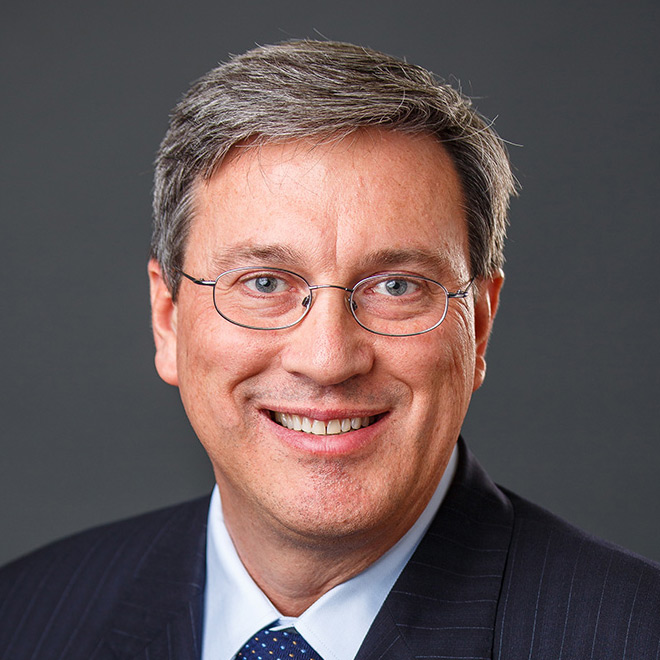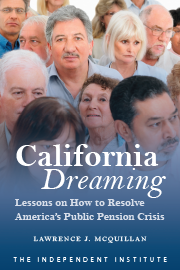On Palm Sunday and World Youth Day, Pope Francis told youth “not to keep quiet even if others keep quiet.” Young people should take his advice and speak out against Pope Francis’s economic agenda.
In his apostolic exhortation Evangelii gaudium (“The Joy of the Gospel”), Pope Francis said, “Young people call us to renewed and expansive hope, for they represent new directions for humanity and open us up to the future, lest we cling to a nostalgia for structures and customs which are no longer life-giving in today’s world.”
Those young people should note that Pope Francis clings to outdated structures and customs. He continues to push the high tax, government wealth-redistribution model that undermines market capitalism, which entrepreneurs, young and old, need to thrive.Pope Francis argues that capitalism and globalization lead to poverty and inequality. In a 2015 interview, he said, “It is true that in absolute terms the world’s wealth has grown, but inequality and poverty have arisen.” His antimarket fervor stands at some distance from the facts.
From 1981 to 2013 the percentage of the world’s population living in absolute poverty (with incomes less than $2 per day) fell from 42 percent to 10.7 percent, according to the World Bank. This happened as market liberalization spread, lifting billions of people out of abject poverty over the past two decades alone.
More than 500 million people in China escaped crushing poverty after promarket reforms allowed unprecedented freedom for entrepreneurs to start new businesses, invest capital, innovate with new technology, trade globally, and hire the best employees. The same process has been at work in India.
At the same time, global income inequality has declined noticeably because of liberalizing economic reforms. Economist Branko Milanovic found that the global Gini value, a common measure of income inequality, decreased from 72.2 in 1988 to 67 in 2011. A lower Gini value means less inequality.
By ignoring these achievements of market liberalization and continuing to push for more government control, Pope Francis undermines entrepreneurship and wealth creation. He should heed the consequences of the policies he favors.
Today only 22 percent of American millennials view entrepreneurship as the best career path. According to the Kauffman Foundation, two decades ago 34 percent of all new entrepreneurs in the U.S. were younger than 34. Now it is only 25 percent.
“Millennials are on track to be the least entrepreneurial generation in recent history,” said John Lettieri, cofounder of the Economic Innovation Group.
Millennials put much of the blame on the government: 59 percent say the government makes it difficult to start a business. More than half think taxes are too high for middle and lower income Americans, and 42 percent lament that they don’t have the financial resources to start a business.
The rate of entrepreneurship in the U.S. has declined over recent decades, but a study from the National Bureau of Economic Research concludes, “Replacing the current personal and corporate income taxes with a 20 percent flat tax should virtually triple the amount of entrepreneurial activity.”
Pope Francis encourages people to help the poor and unemployed, but his conception of “charity” involves taxation and massive wealth redistribution. Paying taxes is not how millennials want to “give.”
Derrick Feldmann, founder of Achieve, says millennials are a “generation willing and wanting to do good action into causes and issues they care about,” and the Millennial Impact Report finds that 84 percent of millennials made charitable donations in 2014. They want to control their charitable giving, and private charity is best suited for this since it puts donors in the driver’s seat and personalizes assistance.
For millennials, work is about more than making money. It is also about improving society. But the ability to start a business, have a satisfying job, and support causes that reflect their values is undermined by Pope Francis’s top-down approach, which stifles entrepreneurship and usurps individual control over spending decisions.
Wealth must be created before it can be used to help others. Market capitalism, propelled by entrepreneurs, is the greatest wealth creator the world has seen. Capitalism empowers entrepreneurs and donors to chart their own courses and pursue their own dreams.
The free market is one of the greatest blessings in human history. Millennials should oppose Pope Francis’s dangerous policy agenda, which hurts their ability to start businesses, innovate, and support causes they care deeply about through effective private charity.











